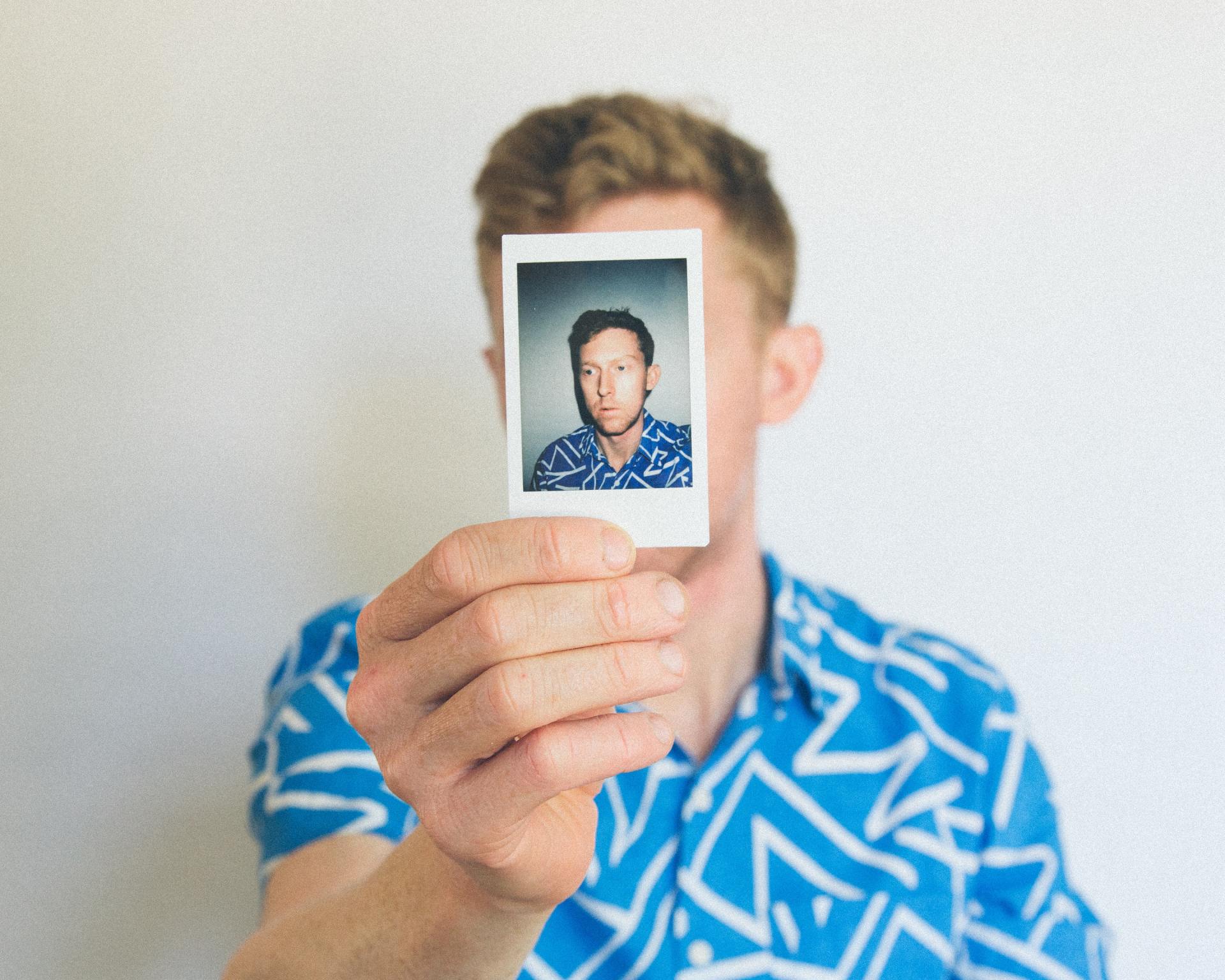Independent Together
How To Develop Self-Identity
Know Yourself | Being in a long-term committed relationship doesn’t mean that you lose your personal identity. In fact, the best partnerships are those that encourage personal growth in their significant other and vice versa. Let’s be honest, you being you is the reason why your partner fell in love with you in the first place!
In my work as a Denver marriage counselor and online relationship coach, I have worked with so many couples that struggle with this exact moment(s) in their relationship – feeling like they lost “themselves.” If you want to develop self-identity, I have some helpful tips you can put into practice.
Falling in love and creating a life together is fun, challenging, and sometimes even consuming. It’s not uncommon that you may find yourself feeling a little lost in your identity from time to time.
When you have been romantically involved with someone for a long period of time, feelings, thoughts, beliefs, dislikes, and passions often start to mend together. These mending moments are often beautiful and encouraging to a relationship that has worked so hard to be successful.
However, when you move forward together in your partnership, it’s also important to continue to grow and develop self-identity and to truly know yourself – developing your own personality, likes, and dislikes in order to continue contributing to your relationship and its success.
The happiest and most successful couples do these five things to strengthen their relationship. Here’s how to develop your self-identity and experience personal growth in a committed relationship.
If You Want to Develop Self-Identity, Learn Something New
Life can feel like it’s moving at a hundred miles per hour when you’re busy balancing work, family, friends, home, pets, health, and your relationship. And when the whirlwind of everything and everyone occupies all of your time and energy – it’s hard to see much further past the present moment that you are in (or attempting to catch up to).
This idea of furthering your education may feel unrealistic or at the very least, impractical with current life events.
The awesome thing about education is that you don’t have to “go back to school” or even enroll in a class (unless you want to and have the time to do so). All you need is to find a topic or area of study that you are interested in furthering your education and want to further develop self identity.
Then, support yourself in this learning journey by subscribing to a podcast, purchasing a book, signing up for a newsletter, or even meeting with an expert in whatever field you’re interested in learning more about.
Then, while you are driving to work, running your weekly errands, or running the kids between afterschool activities you can listen to a podcast, read a chapter while waiting for swim lessons to end, catch up with a weekly newsletter over coffee, or grab lunch with someone who can speak to what it is you are interested in.
Alternatively, if you struggle to find something that you are interested in learning more about – maybe connecting with an online life coach could help shed some light on areas of interest and beneficial pathways to your personal success.
This simple (and sometimes passive) way of learning will encourage personal growth and personal understanding while you continue to balance all that life throws at you. Not only will you be developing the way you see yourself and the world, but you will also open up new conversations between you and your partner.
Have a Hobby That’s All Yours to Help Develop Self-Identity
The more effort you put into finding that perfect you hobby, the more you will enjoy it and look forward to it.
You and your partner may have EVERYTHING in common, and that’s okay…but I promise you, if you take the time to find something that is ALL yours – it feels super rewarding.
I’m not saying that you have to keep this new hobby from your partner, but the more you treat it as your you time, the more beneficial it will be.
For those who have been in a long-term relationship (and I mean a relationship that literally feels like for-ev-er) it can feel intimidating and even difficult to find a new hobby that’s all yours. Try a few things out; if you decide you hate it – try something else. You have options when you want to develop self-identity!
The more effort you put into finding that perfect you hobby, the more you will enjoy it and look forward to it. Remember, the whole point of this experiment is to fall more in love with who you are and to continue growing as the awesome individual that you already are!
Make Your Friendships a Priority
Yes, I’m looking at you → “Well, I have friends, but I only see them once a month if our schedules line up, and the kids are away at someone else’s house for the night, and my partner is also friends with my friends’ partners.” ← Stop overcomplicating your friendships!
Making your friendships a priority is extremely important in any relationship and an excellent way to develop self-identity. You need your gal pals or dudes who have completely different and often similar walks of life to challenge you, encourage you, comfort you, and keep you on your toes.
If Finding Friends You Can Count On feels like a challenge, then it might be a good time to reassess your friendships and begin working towards healthier, more sustainable relationships. It’s important as adults that we prioritize our friendships, here’s more on: The Importance of Healthy Friendships.
While your partner might be your best friend, don’t forget about your besties. They need you as much as you need them in order to grow as an individual and even flourish in your partnership. A good friend can offer support, accountability, and help you know yourself (or at the very least, remind you who you are when you need it the most).
Develop Self-Identity by Developing Your Idea of Art and Culture
There is so much we can learn about ourselves by the music we enjoy, the pictures we take, the food we cook, and the way in which we share these experiences with our world.
For some, the love of art, music, and culture comes naturally. However, a lot of us are a little more generic and may find it difficult to stay interested or appear so at the dinner parties of our most artistic and culturally savvy friends. The thing with art is that there is SO much of it. There are so many fantastic forms of it – painting, drawing, live-action, music, graphic design…the list goes on. Art stems from cultures, lifestyles, fantasies, and often tragedies. Knowing not necessarily the history of art but knowing how it makes you feel is important.
There is so much that we can learn about ourselves by the music we enjoy, the pictures we take, the food we cook, and the way in which we share these experiences with our world.
Developing a keen sense into what you enjoy and why you enjoy it will not only promote a greater understanding of the self but you will also have a deeper understanding into areas of you that your partner fell in love with.
I think we often get swept up in keeping up with the …… (insert your play on this here) and we forget all the little and big things that bring us joy and make you, well…you! If you have ever heard a song or watched a movie that you proclaimed “I used to LOVE this song/movie!” Then you know a little of what I am talking about.
I encourage you to keep chasing after those passions that may even feel a little juvenile to you now with the chores, employment, family, and general life obligations. The thing is, this passion is still inside of you. Maybe playing guitar for that punk band in high school didn’t end up in a successful music career – but the art of playing guitar, appreciating music, and the drive to be better (or even the best) at whatever it was you were in love with at that time is still a part of who you are. Let that side of you show more and encourage yourself to grow in these areas as it ultimately created a big part of who you are today.
Set Aside Time For Self-Care
I know you have heard this probably a million times (no exaggeration), but self-care is one of the BEST and MOST IMPORTANT things you can do for you and your relationship. Setting time aside to take care of yourself physically, emotionally, and spiritually will help set you and your relationship up for success.
It’s easy to say “yeah, yeah, I get it…self-care, I got it – thanks!” It’s a lot harder to follow through with it and meet yourself where you need it the most. If you are finding yourself needing a little emotional vacay, check out: Emotional Self Care When Your Life is Falling Apart.
Self-care may be a habitual event for you – like drinking coffee and having quiet time before the family wakes up. Or it might be a little less traditional and change week to week. Whatever your body, heart, and mind are telling you, be sure to listen. Your ability to take care of yourself ultimately affects your ability to take care of others.
If you find yourself getting irritable, depressed, angry, stressed-out, overwhelmed, or even just complacent – that’s your cue that it’s time for a little me time.
Self-care doesn’t mean that you have to spend time alone. Self-care is different for everyone and if that means a weekend (or couple hours) to yourself, awesome. And if it means something entirely different, that’s great too.
Here’s to YOU and the awesome individual you are in and out of your relationship.



